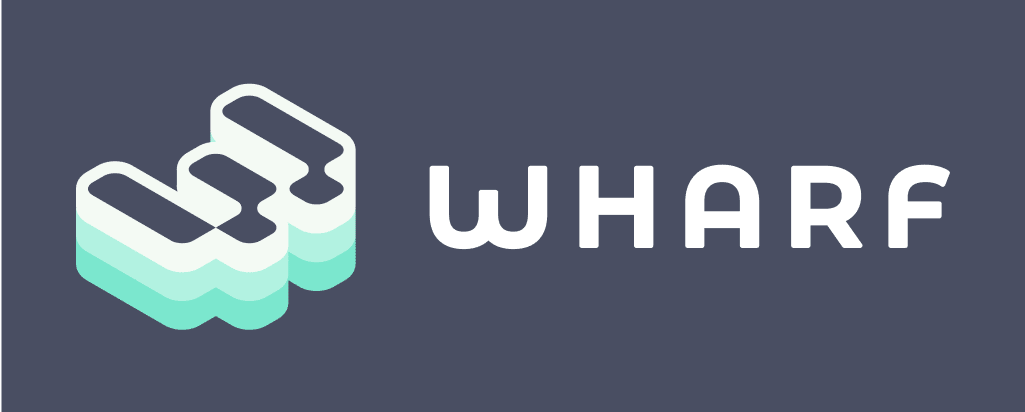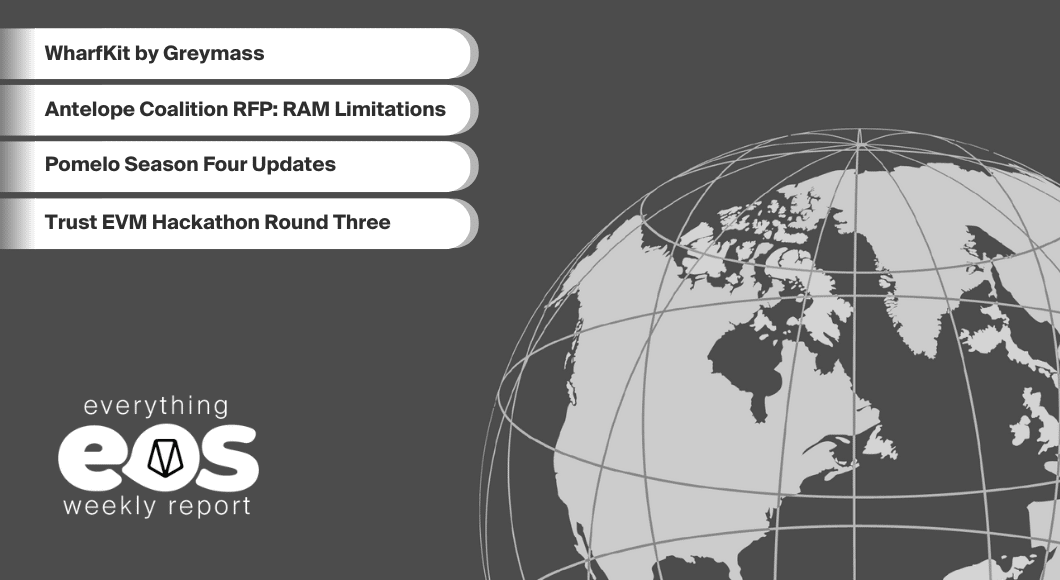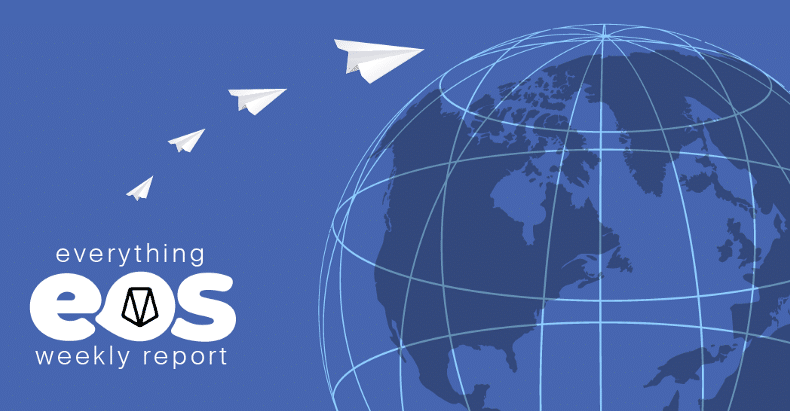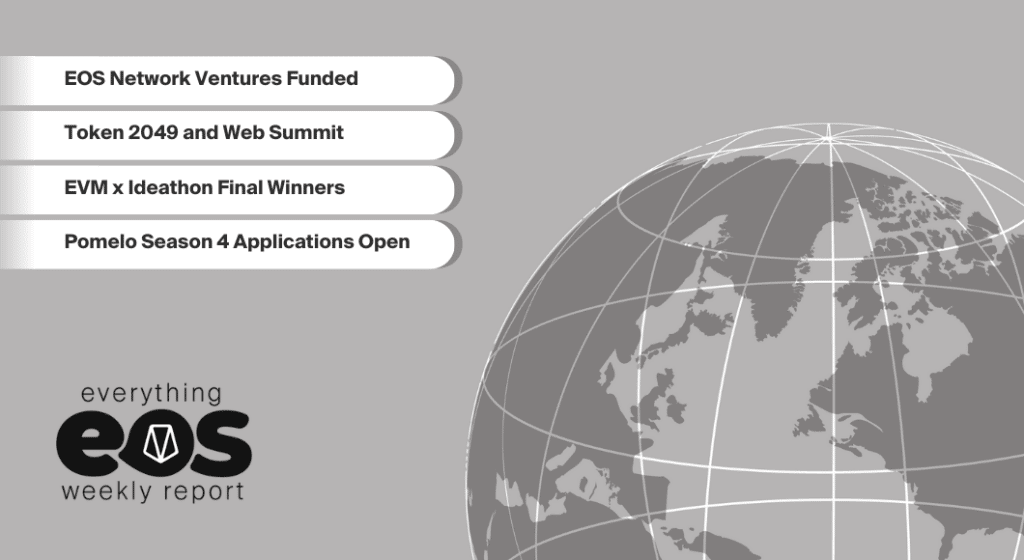The Everything EOS Weekly Report publishes all of the latest news and updates from around the world in the EOS ecosystem. The Everything EOS Weekly Report sources stories and updates from community members that are part of the English, Chinese, & Korean EOS communities. The Everything EOS Weekly Report is the best place to catch up on all the latest news in EOS from all around the world.
WharfKit by Greymass

After much anticipation from the EOS community, Greymass unveiled their new software development kit project, WharfKit. The branding for Wharf is months in the making, focusing on creating something memorable that potential users can easily discover through search engines and online chat boards and share effortlessly by word of mouth.
A Wharf is a platform from which sailors load boats and set sail. Wharf will serve this purpose for smart contract developers, allowing them to build their solutions and launch on Antelope blockchains. The initiative results from the ENF’s SDK Request For Proposal and anticipates completion around fall 2023.
Wharf is a complete framework of intuitive and reliable developer tools for building web-based apps on Antelope blockchains. Wharf’s modular and user-focused code packages make it easy to turn your idea into reality, whether you want to create a wallet, mint NFTs, design a DeFi protocol, or build something entirely new.
Wharf helps developers code their apps quickly and easily and takes care of the complexities of building on Antelope. With Wharf, developers can stop reinventing the wheel and benefit from the knowledge of expert Antelope developers. The toolkit helps prevent devs from overcomplicating their code. It reduces code bloat and technical debt by allowing devs to hand-pick the best code packages to suit their project.
Wharf can help developers build apps their users will love, turning users into fans with pre-built UX flows that make it simple to use the blockchain. Anyone interested in staying updated can visit the WharfKit GitHub repository and Twitter account.
Antelope Coalition RFP: RAM Limitation Fixes
The Antelope Coalition has published a Request For Proposal for RAM limitation fix research, which the Coalition has identified as a priority for all chains, especially WAX. This RFP encompasses the research necessary to create solutions to the expanding need for RAM with increased usage.
As a starting point to address AntelopeIO RAM issues, the Coalition needs research on better managing physical memory on Antelope nodes. The RFP outlines the requirements for this research, which requests research around more efficiently using existing RAM resources, utilizing commonly available hardware to increase storage capacity, and identifying the trade-offs of each proposed solution.
Pomelo Season 4 Updates
The fourth season of Pomelo kicks into overdrive this week, with community donations racking up over 18,000 EOS already among 113 approved grants. The grant application period is still open, and anyone with an idea for a public good that can leverage EOS or the Antelope blockchain can apply at Pomelo.io.
Pomelo is a crowdfunding platform where you can post your Web3 public good projects and bring your community to support them. Projects also have their donations matched based on the number of unique donors from a pool of funds, bringing in funding from two sources.
Pomelo utilizes quadratic funding, where the greater number of individuals that support a project, the more funds that project will receive from the matching pool.
Approved Grant owners get the opportunity to share about their grant on the Pomelo pitch sessions, which Pomelo hosts in three languages: English, Chinese, and Korean. Twitter Spaces hosts English and Korean pitch sessions, while the Chinese sessions take place on Tencent Conference.
Pomelo donators can listen to recordings of the first and second week of Twitter Spaces pitch sessions or the Korean pitch session to learn more about some of the fascinating Pomelo grants vying for their slice of the matching pool.
Participants can also create collections to highlight their favourite grants. A collection is a group of grants by a Pomelo community member. When adding grants to a collection, a collector’s criteria are up to them, including if they use a specific theme or category. As a grant donor, collections can be your guide if you have the funds to donate but don’t have the capacity to read through all the grants every season. Donors can find a collector they trust and donate to the grants in their collection.
NFT collectors can also get in on the Pomelo action by harvesting Moon Rocks and Grant Collectibles and blending them into Robot Potions. These potions generate Moon Robots that will help Pomelian astronauts build their moon base later this season.
Between these initiatives, Pomelo participants of all stripes can join the Pomelo experience and help fund public goods on EOS.
ENF Twitter Spaces: DeCafe
DeCafe is a new outreach initiative that features Nathan James, developer relations lead at the ENF. DeCafe’s Twitter spaces events explore how to break into the blockchain industry for developers and non-developers alike.
In addition to developers and designers, the blockchain industry requires marketing, project management, finance management, legal teams, and many other functions that those wishing to join the blockchain industry often forget. DeCafe provides tips on applying for blockchain jobs and outlines the concerns blockchain-based companies must consider when hiring, providing a crucial perspective for those looking to enter the space.
Zack Gall at DCentral Miami: Let’s talk Layer 1’s

Zack Gall took the stage in Miami at DCentral Miami in a conversation with representatives from Kadena, Lamina1, and Meta Reach.
Along with Yves La Rose and the team at Zaisan, Zack has brought visibility to the story of EOS and the power of the Antelope software stack. By attending conferences worldwide, like Token2049 and WebSummit, the ENF has been spreading the word about how the Antelope protocol shook off the shackles of its former overseers, proving that true decentralization gives participants the power to allow communities to define their destiny.
EOS Node Operator Round Table

Since the September 21 Leap upgrade, node operators have met weekly to discuss Leap development. The call has evolved into a round table where Antelope engineers meet with Block Producers and other node operators to discuss potential future features, fixes, and other upgrades.
This week’s meeting featured 14 participants and included information about the final release of Antelope Leap v3.2.0 and a lively, in-depth discussion about the protocol’s peer-to-peer (P2P) communication and Net plugin improvements.
The group identified several opportunities for improvement.
The Net Plugin, which is optimistic and more or less stateless, could be altered to have some intelligence. This improvement would reduce inefficient workflows and save valuable time instead of blindly running through the block log.
The group also discussed improving the management of peer nodes. Evaluating, configuring, and managing peers in terms of bandwidth usage or total peer connection count is a challenge. Improvements to these peer management features could greatly increase the efficiency of P2P data exchange.
They also addressed improved management of problematic peers, such as those submitting unreliable transactions or unlinkable blocks or not respecting the “no transaction” signal. There is no easy way to detect and remove these problematic peers from the peer list.
Given the numerous obstacles in blockchain programming, trade-offs of decisions might impact others. A good example is balancing latency and performance when optimizing throughput by compressing the block production time.
The conversation continues weekly in the Block Producer round-table, which the ENF publishes on their Youtube channel.
Trust EVM Hackathon Round 3

Trust EVM, the official enterprise-grade EVM on EOS, opened registration for the Trust EVM Hackathon round three on November 21st. The hackathon features multiple tracks and is accessible on DoraHacks.io to all developers.
Trust EVM has provided a $150,000 prize pool for the hackathon, for which submissions are open from November 21st, 2022, until February 12th, 2023. Project demos will take place from February 15 – 17, and Trust EVM will announce the winners on February 28th.
The previous round’s community vote closes on December 4th, and anyone interested in having their vote counted should share their opinion on the official Google Form.
All entrants who intend to join the Trust EVM ecosystem can enter this hackathon. Entrants must deploy their projects on the Trust EVM testnet or mainnet for judging and should be able to launch on the mainnet.
All projects must submit a complete deck or document for important project information. Entrants should also provide a 5 minute video demo for the project, along with a document with instructions for the reviewers to try the project.
All entrants must attend live Demo Day for a 10 min presentation as the precondition to going to the judging period.
Submitted projects should not violate relevant laws and regulations or infringe on any third party’s intellectual property or other rights. Otherwise, Trust EVM will disqualify the project.
The DeFi track is for projects that build decentralized financial products that leverage the Trust EVM network with trustless and transparent solutions. Some examples include asset management tools, DEXs, derivatives, and stablecoins.
The GameFi track focuses on gaming solutions that incorporate tokenization and offer economic incentives to players. No matter what genres of content and in-game business models of GameFi projects you build, engage this mission to build a better GameFi future.
Metaverse, NFTs and SocialFi is a track focusing on imaginative NFT projects or applications that support decentralized ecosystems. Applicants can also use this track to share decentralized social media applications incorporating decentralized finance.
The Infra, Tooling and Frontier Tech track is for builders of infrastructures, tooling, or frontier tech projects related to the function and scalability of Trust EVM and its ecosystem.
Finally, the DAOs track focuses on those who wish to create DAOs or build DAO use cases on the Trust EVM ecosystem, helping grow the community and construct a decentralized world.
Weekly EOS Community Events & Upcoming Conferences
As always, we host Fireside Chats in the EOS Community Discord every Wednesday at 19:00 UTC. Everyone is welcome to attend and ask questions directly to some of the best builders in EOS. We look forward to seeing you there!
This week the EOS community was represented at the following conferences:
- DCENTRAL Miami, Miami, USA, Nov 28-29 (Mon-Tue) (website)
- TECHEX Blockchain EXPO, London, UK, Dec 1-2 (Thu-Fri) (website)
The EOS community also hosts many online events that anyone can join every week:
- Eden ƒractal, Wednesdays 13 UTC on Zoom (Discord, Twitter)
- Helios Futurist Series, Wednesdays 14 UTC on Twitter Spaces, (Twitter, Website)
- EOS Fireside Chat, Wednesdays 19 UTC on Discord (Youtube, Short Clips)
- EOS Support Giveaway Show, Thursdays 16 UTC on Twitter Spaces (Twitter, Website)
- Hot Sauce, Fridays 16 UTC on YouTube (YouTube, Twitter)
- Helios Twitter Spaces, Fridays 17 UTC (Twitter, Website)
- Eden Town Hall, Sundays 16 UTC on Zoom (Discord, Youtube)
EOS Network
The EOS Network is a 3rd generation blockchain platform powered by the EOS VM, a low-latency, highly performant, and extensible WebAssembly engine for deterministic execution of near feeless transactions; purpose-built for enabling optimal web3 user and developer experiences. EOS is the flagship blockchain and financial center of the Antelope protocol, serving as the driving force behind multi-chain collaboration and public goods funding for tools and infrastructure through the EOS Network Foundation (ENF).
EOS Network Foundation
The EOS Network Foundation (ENF) is a not-for-profit organization that coordinates financial and non-financial support to encourage the growth and development of the EOS Network. The ENF is the hub of the EOS Network, harnessing the power of decentralization as a force for positive global change to chart a coordinated future for EOS.


